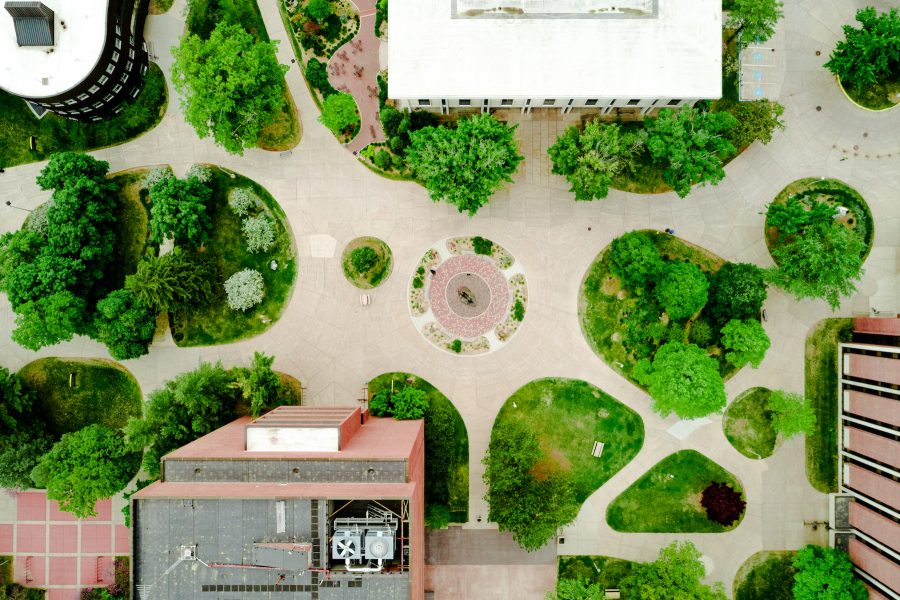
What will it take to reach STARS Gold, or STARS Platinum?
Alan Turnquist shares his knowledge on Husky Bites, a free, interactive webinar this Monday, October 25 at 6 pm ET. Learn something new in just 20 minutes (or so), with time after for Q&A! Get the full scoop and register at mtu.edu/huskybites.
What are you doing for supper this Monday night 10/25 at 6 ET? Grab a bite on Zoom with Dean Janet Callahan and Alan Turnquist, director of Sustainability and Resilience at Michigan Tech.
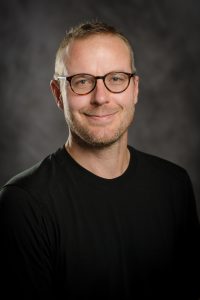
Sustainability and resilience are buzzwords that cut across individual choice, corporate culture, and policy at all levels of government. But how do they impact higher education? During Husky Bites, we’ll learn some fresh perspectives on what these issues mean for the future of higher education and how faculty, staff and students at Michigan Tech are integrating sustainability and resilience into our core goals.
Joining in will be Chelsea Schelly, associate professor of sociology, as well as Larry Hermanson, Michigan Tech’s director of Energy Management.
“I work side by side with Larry and Chelsea on the Tech Forward Initiative for Sustainability and Resilience,” says Turnquist. “We all come from different places and have different perspectives, but we share the same passion for working together for the future of Michigan Tech.
Turnquist came to Michigan Tech in 2019 from the University of Wisconsin-Madison, where he managed the Agroecology graduate program with faculty from over 20 different academic departments. He also led a team at UW Madison managing the GreenHouse Learning Community, an undergraduate residential program focused on sustainability, environment, food systems and social justice.
Upon arriving at Michigan Tech Turnquist joined the Waino Wahtera Center for Student Success, where he designed, implemented and led orientation programs for incoming students. He moved into his current position as director of Sustainability and Resilience just last month, in September 2021.
“Much of my work has a thematic focus on sustainability and social justice,” adds Turnquist. “Regardless of the theme, my professional passion and greatest skill is collaborating and connecting with people while working for a common cause.”
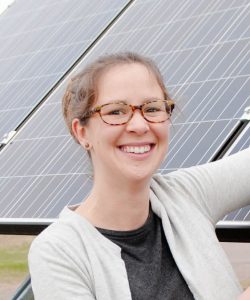
Associate Professor Chelsea Schelly joined Michigan Tech’s Department of Social Sciences in 2013. She earned a BS in Social Sciences at the University of Wisconsin-Madison, an MS in Social Sciences at Colorado State, then returned to Madison for her PhD. Schelly researches and writes about energy practices, consumption behaviors, energy conservation, and the adoption of alternative technology in a wide variety of contexts—from solar electric technology and policy, off-grid living and intentional communities to Rainbow Gatherings and 3-D printers for distributive manufacturing.
“We’re all three committed to seeing positive change that creates a more sustainable and resilient University,” says Schelly. “That includes more opportunities at Michigan Tech for leadership, research, and education in resilience and sustainability.”
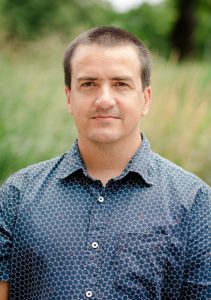
Larry Hermanson joined Michigan Tech in 2015 as Director of Energy Management. Hermanson oversees all aspects of energy management across Michigan Tech’s 3-million square foot campus. He is also an alum—Hermanson earned a BS in Mechanical Engineering in 1992, and secondary education certification in 2012, both at Michigan Tech. He’s had a diverse career with over 20 years of experience in HVAC, construction, and industrial plant operations and maintenance, worked at iron ore and copper mining operations, and also spent a few years teaching high school science and math. Hermanson earned his certification with support from an NSF Robert Noyce Scholarship, and worked as a STEM teacher for Washington Island School in Wisconsin.
Michigan Tech aims to be a leader in demonstrating sustainability through the campus experience. The university is a member of the EPA Green Power Partnership and, through the student-led Green Campus Enterprise, actively accounts for its campus carbon footprint each year. Michigan Tech is a member of the Association for the Advancement of Sustainability in Higher Education (AASHE) and is ranked by AASHE as a STARS Silver campus. Many student organizations on campus focus on sustainability activities; and we’ll learn about Michigan Tech’s sustainable electricity, trash, water, and wastewater systems, too.
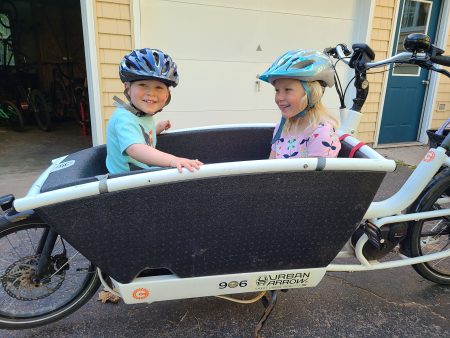
Alan, how did you first get into Sustainability? What sparked your interest?
Growing up in the forests and lakes of northern Wisconsin and the Upper Peninsula of Michigan gave me a deep appreciation for the natural world. Reading Aldo Leopold from an early age taught me the importance of being intentional about the way we interact with the land on which we live. Finally, studying international development and living in Central America brought home the amazing ingenuity of the human spirit, and the challenges we face in working across different perspectives in balancing individual freedoms and collective action.
Hometown, family?
I was raised in Phillips, Wisconsin, a small northern town surrounded by the Chequamagon National Forest. I eventually moved to Madison, where I spent 25 years studying and working before moving to Houghton in 2019. I earned a JD in Environmental and Administrative Law, an MS in Agriculture and Applied Economics, and BA in Latin American and Caribbean Studies, all at UW-Madison. My wife, Erin and I have two young children, Sami and Lila, ages 3 and 6.
What do you like to do in your spare time?
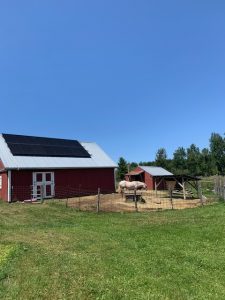
So many hobbies, so little time! I love to be outside skiing, biking, paddling, and foraging. One big appeal of Houghton is that we have actual winter, with real snow that stays on the ground. It’s like we live in a giant playground.
My wife and I both like riding bicycles. We have commuted by bike pretty much every day for the past 20 years or so. Our “claim to fame” in the biking world is that we strapped our tandem bike to the top of an old volvo 240 wagon and drove it as far north as we could, to where the road ends in Inuvik, Northwest Territories—a small indigenous community in the Canadian Arctic where the Mackenzie River empties into the Arctic Ocean. We gave away the car and rode our tandem bicycle all the way to Ushuaia, Argentina, which is the southernmost point in South America. It took us just over 18 months to cover the 17,000 or so miles, with lots of down time to get to know some amazing people and places along the way. It’s been almost 10 years since we finished that ride, and it’s hard to believe that we actually did it. Just goes to show what a little persistence can accomplish!
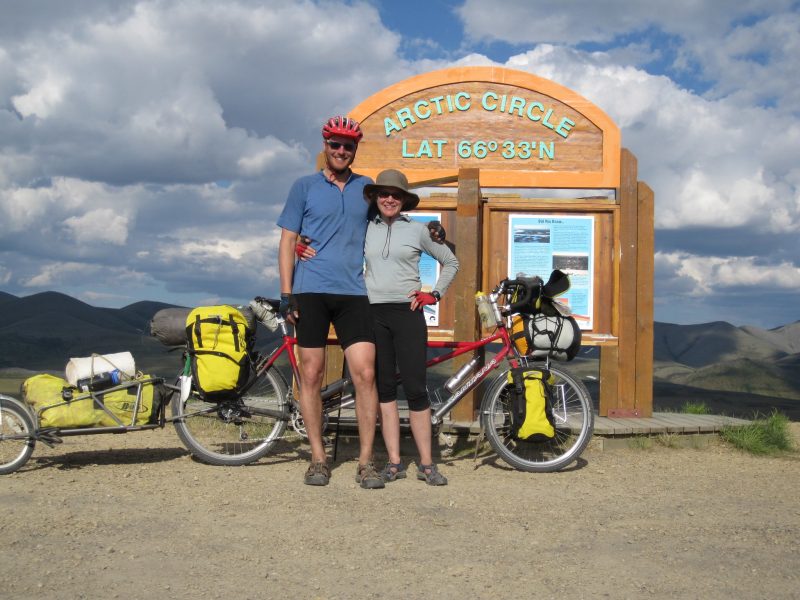
Prof. Schelly, How did you first get into social sciences? What sparked your interest in sustainability?
I grew up in suburbia, and spent my childhood wondering why anyone would want to live in that setting. Learning about sustainability provided an opportunity for me to see other ways of organizing human life.
I am motivated by a belief: when humans learn to live in ways that are more respectful of the ecological systems upon which we all depend, we’ll learn to be more respectful of differences across human systems—and be more kind to one another.
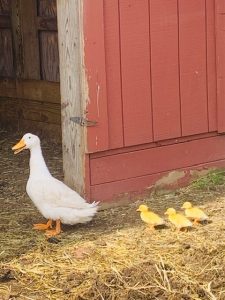
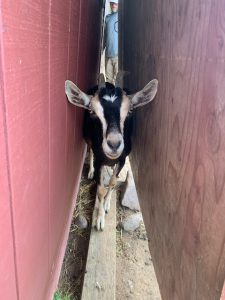
Hometown, family, hobbies?
I graduated from high school in Oklahoma and ended up going to college in Madison, Wisconsin. I am now a mom in many ways (biological, step, foster, exchange) and share a farmstead with my husband, our (currently 6) children, 3 dogs and a cat, ducks, chickens, goats, horses, and often a tiny house or van dweller or two. We’re outside—and on the go—a lot!
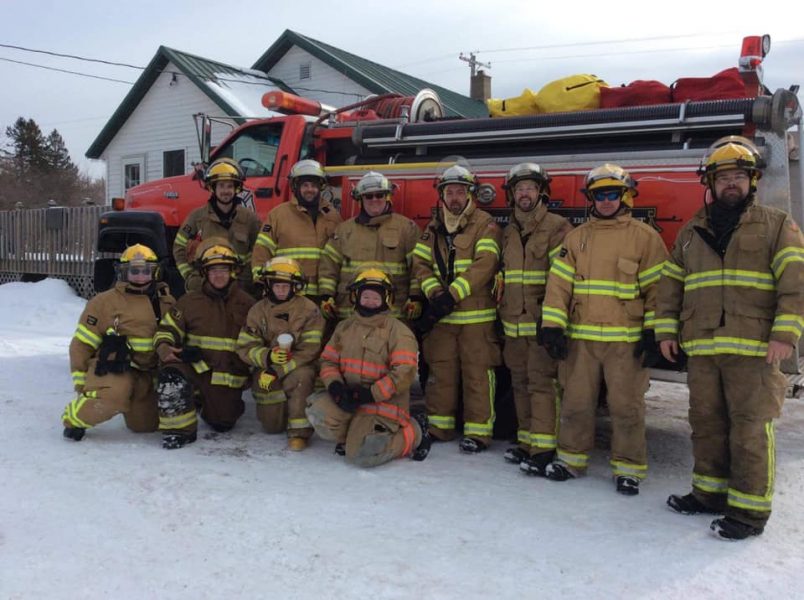
Larry, how about your family? What do you like to do in your spare time?

I have two teenage daughters and enjoy spending time outdoors. I’m a volunteer firefighter/EMT with the Chassell Volunteer Fire Department. I also have a great dog, Teddy.
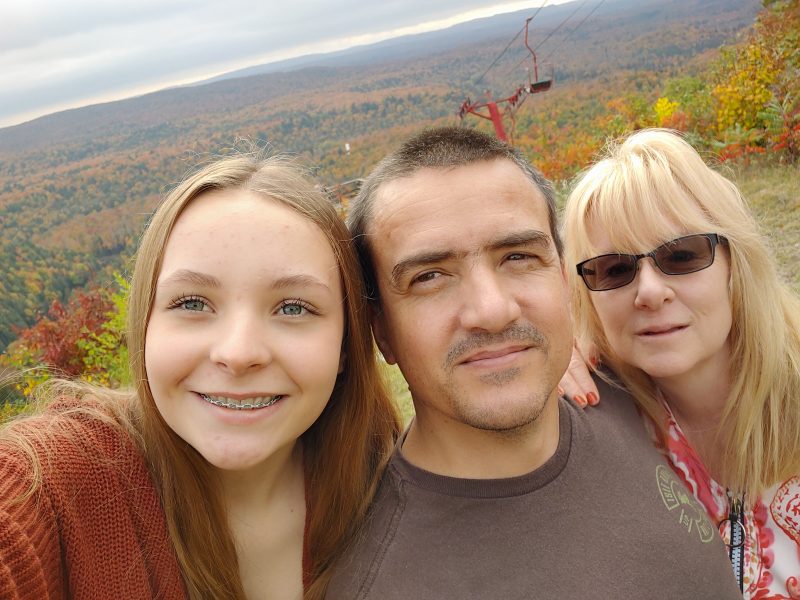
Read more
Michigan Tech Sustainability Website